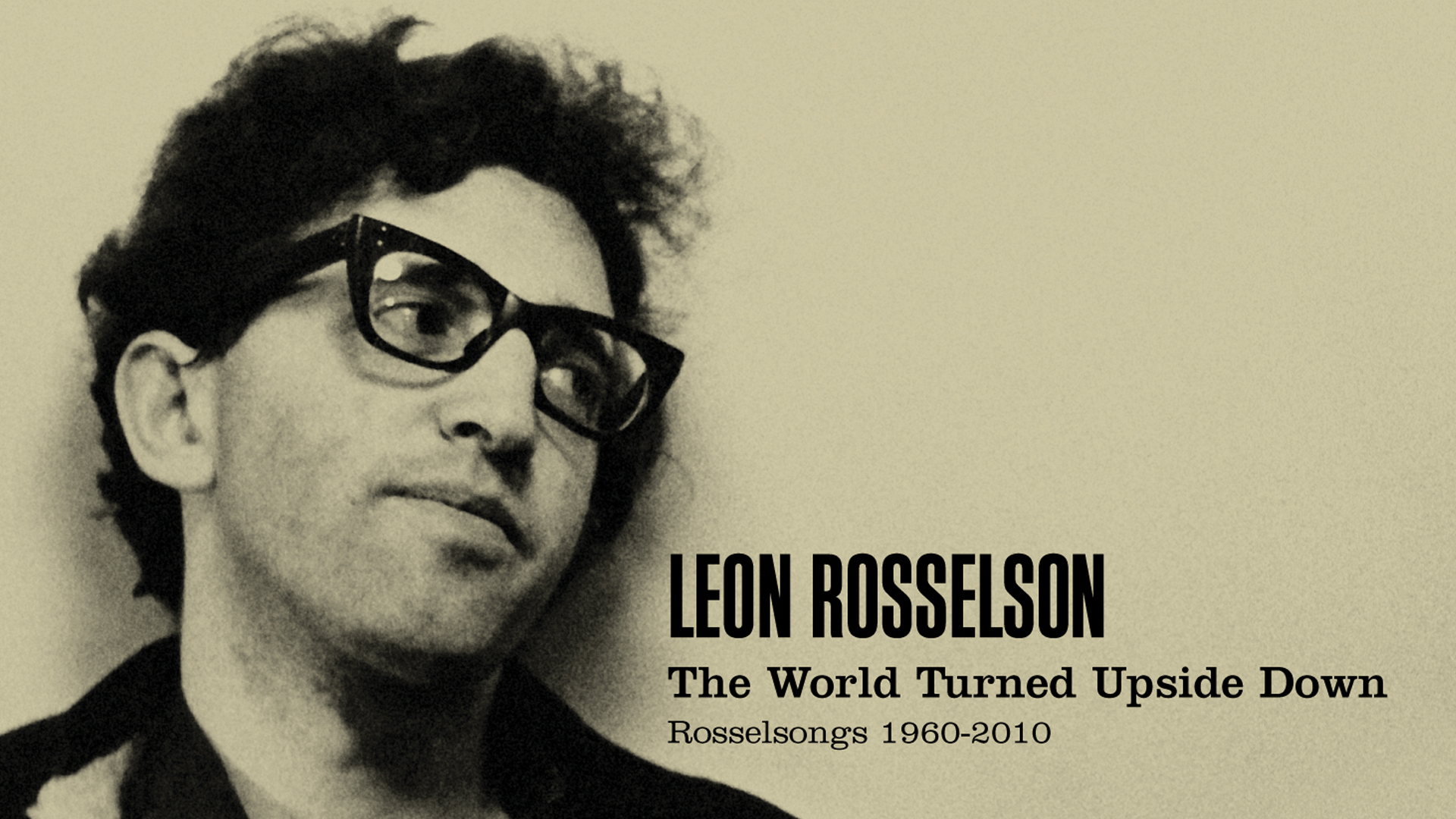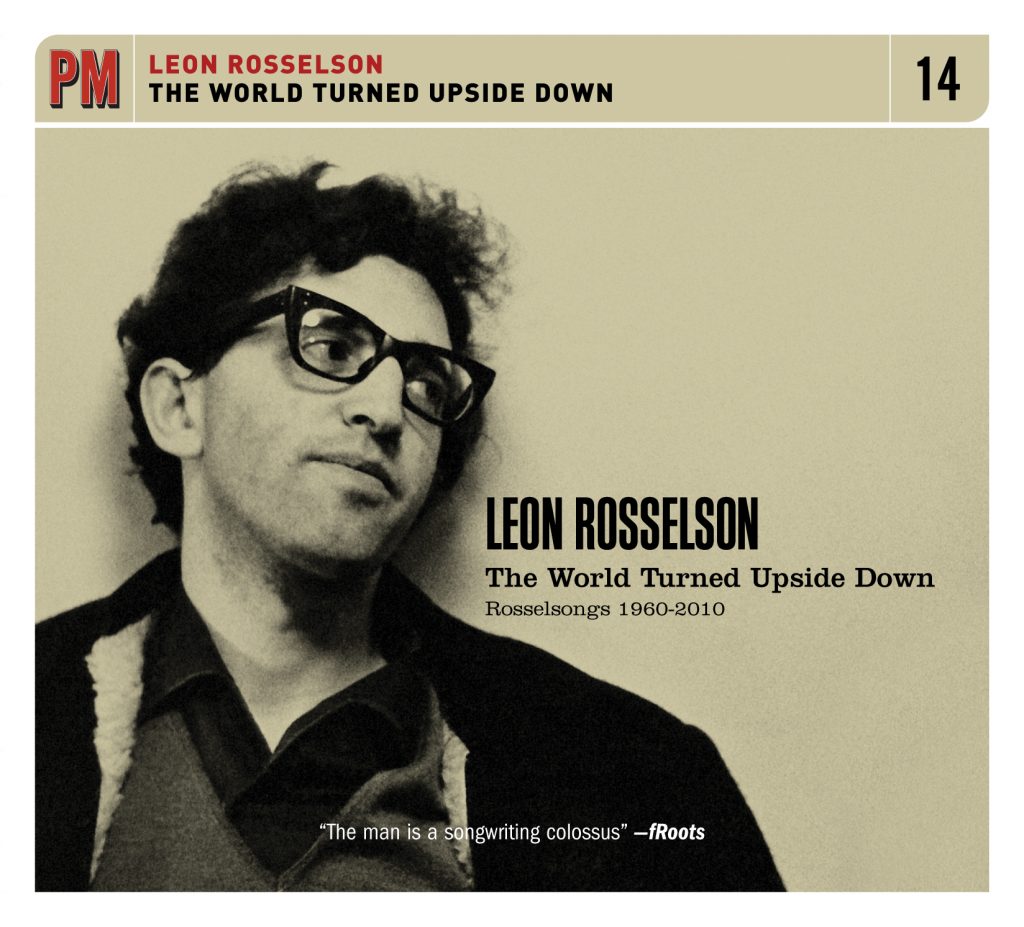Making a Noise/ Gwneud swn
By Iain Campbell
Taplas.co.uk
Fifty Years of Thought-Provoking songs
Leon’s excellent four CD, seventy-two song, boxed set The World Turned Upside Down
(PM Press) with his extensive notes selecting highlights from his
output over five decades as, arguably, Britain’s best singer songwriter.
His influence has been broad and wide. Many of his songs have been
covered but probably, none more famously than Billy Bragg’s version of
“The World Turned Upside Down.” The words to this song were also painted
on a wall in People’s Park in Berkeley, California during a protest to
keep the park open to the public.
I first came across him when,
as callow youths, a friend and I hitched to the fourth Cambridge Folk
Festival. There were many outstanding acts there that year, but Leon
made an abiding impression. I cannot say that I have always followed his
career since then, but our paths through folk music have been entwined.
He always seems to write songs pertinent to the issues of the time,
which then remain relevant through subsequent years. His “Palaces of
Gold” became more resonant for me when I moved to attend the
University in Cardiff in 1969. It was only a few years after the Aberfan
tragedy and memories were still sharp. Other songs important to me
include: “Battle Hymn of the New Socialist Party,” “She Was Crazy,” “He
Was Mad and Jumbo the Elephant.”
When I discovered him he was
already an established name. He had been performing with Robin Hall and
Jimmie McGregor in a trio The Gallards. Later he was in a band called
The Three City Four, which included Martin Carthy, Marian McKenzie and
Ralph Trainer.
He wrote “Don’t Get Married Girls” as the women’s
movement grew during the seventies. I first heard it sung by the lat
Ray Fisher who, as patron saint of our school folk club, had earlier
been instrumental in opening our eyes to folk music and encouraging the
trip to Cambridge. This decade also saw him working with Roy Bailey and
Frankie Armstrong notably on two shows; the anti-nuclear”No
Cause for Alarm and Love,” “Loneliness and Laundry,” which dealt with a
big topic of the decade, personal political. Important songs were “The
Ant and the Grasshopper,” “The Man Who Puffs the Big Cigar,” “Stand Up
for Judas” and, of course, “The World Turned Upside Down.”
I
rather lost touch with him during the eighties. A young gaughter meant
my attention was directed away from music. But his songs broke through
the sheath of parenthood from time to time. This was the Thatcher decade
and it provided so much fuel for his songwriting: “Jackboot Democrats”
and “Ballad of a Spycatcher,” for example. He was touring at home and
abroad again with Roy Bailey and Frankie Armstrong and occasionally,
Sandra Kerr. He and Roy put together two more shows; one about Tom Paine
and the other one the Spanish civil war. Important songs included “Who
Reaps the Profits? Who Pays the Price?,” “Song of the Old Communist,”
and “General Lockjaw Briefs the British Media.”
That the
nineties and nougaties have been compressed onto one disc does not mean
that his output has weakened. “A Very Busy Man” spoke to me as I was
writing this after a long and trying work week. General Lockjaw made
another appearance, this time “Briefing the Troops (As Reported by a
Skeptical Soldier).” Important songs from this era were “Harry’s Gone
Fishing” and “Where are the Barricades?”
It was during the last
decade that he wrote two of his most important and, for our time, most
resonant songs. “In My Father’s Jewish World” celebrated the views of
his parents and his own Jewishness and he writes: “It’s not a nation,
not a religion. This Jewish spirit is still unbroken . . . it’s like the
spark that signals rebellion. It’s like the dance that circles
unending,” and I wonder what to me his Jewish legacy has been” . . .
That precious strand of Jewishness that challenges authority and dares
to stand against the powers that be: . . . The Jewish anarchists and
socialists who fought to free the poor; the ones who meet unjustices
with anger . . . who defend the weak against the strong. It’s for these
rebel Jews I sing my song”.
The second, and to my mind, one of
the best songs ever written, is “Song of the Olive Tree,” about the fate
of a tree and the people of Palestine. It’s a song that is at once
beautiful, depressing, anger-inducing and finally, hopeful and
inspiring.
Although Leon has celebrated his seventy-fifth
birthday and does not intend touring as much, I suspect and hope that he
will continue to write and put his beautifully crafted songs out to
inspire, remind, amuse and entertain us.







